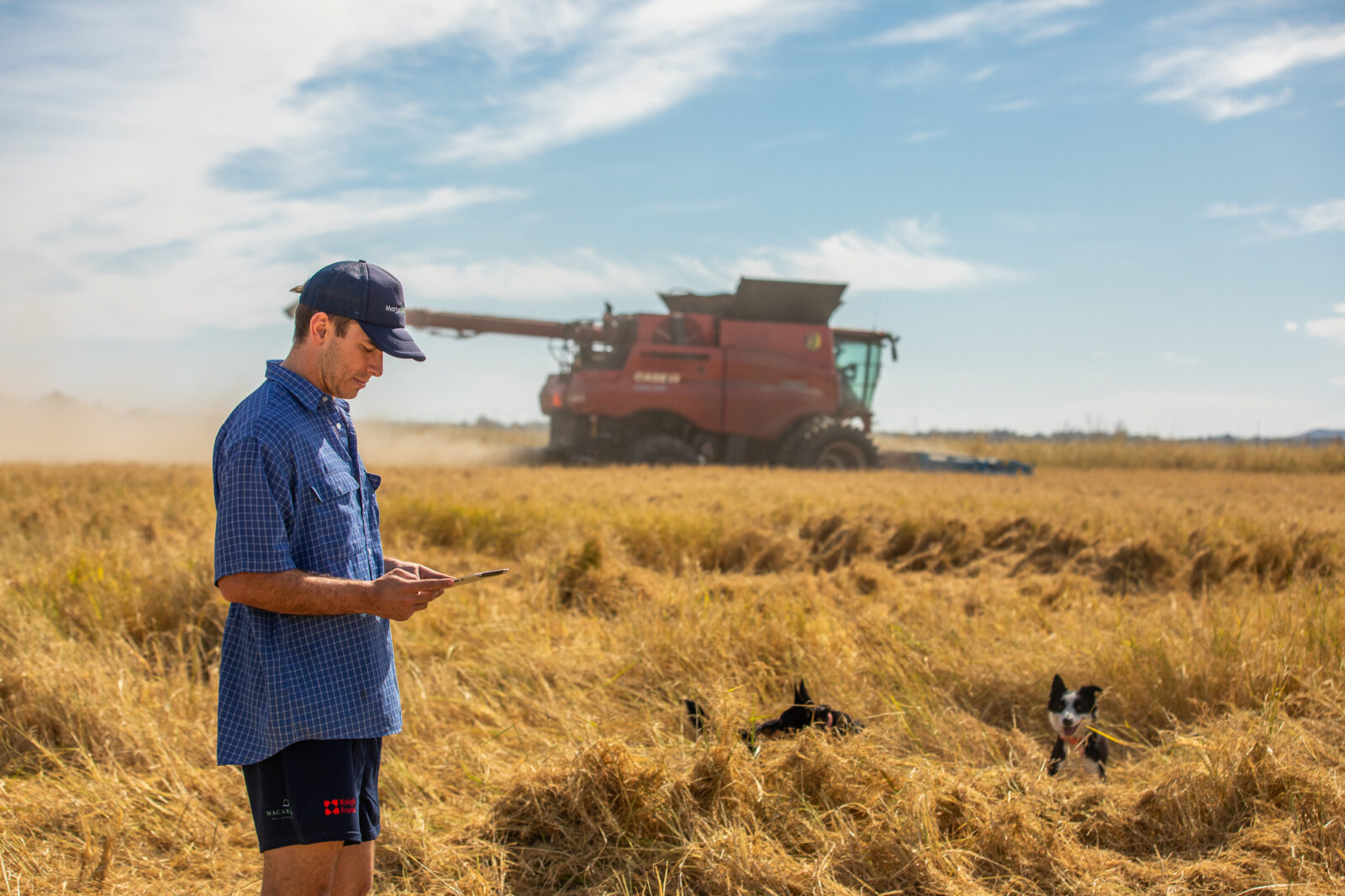Grower insights guiding the next Rice RD&E Plan

 NATIONAL CHALLENGES AND OPPORTUNITIES / Wednesday, 26 June 2024
NATIONAL CHALLENGES AND OPPORTUNITIES / Wednesday, 26 June 2024 
The team assigned to deliver the project is a collaboration between the Appleton Institute and the Ag Education and Extension team at CQUniversity Australia and AgHealth Australia at The University of Sydney. The team plans to explore the root causes and impacts of fatigue on farms, aiming to enhance safety, productivity and wellbeing across the agricultural sector. Fatigue on-farm has been identified as an industry wide priority for the RSHA, a collaborative partnership between Rural Research & Development Corporations investing to improve primary production’s health and safety record centred on innovative research and development.
Director of the Appleton Institute, Prof Sally Ferguson, is leading the project team.
“The mining industry has been doing this for years – analysing specific element of their operators’ work that cause fatigue, understanding the specific consequences based on how their performance is impacted and managing that risk,” Prof Ferguson explained.
“That’s what we want to learn for the farming sector.”
Additionally, Prof Ferguson emphasises that managing fatigue in the agricultural industry is about tailoring solutions to individual situations.
“[The RSHA] wants producers to have a clear understanding of what causes fatigue and how their current working patterns can be tweaked a little bit to manage the risk better. It’s not about saying to farmers, ‘You have to change your entire schedule’. It’s about saying, ‘What do you need to be thinking about while you’re working to keep yourself safe, happy and productive?’”.
Sally explains that managing fatigue is not about “downing tools after X number of hours” – fatigue is inevitably higher at some times of the year and at certain parts of the day for different individuals working in different industries.
Mr Bernie Bierhoff, a member of the Cotton Australia board and a member of the Walgett Cotton Growers Association, emphasised that fatigue presents in many different ways.
“As people get fatigued their sense of what is safe and what is not is blurred. Employers limit work to a maximum number of days before a break, however senior staff like owners, supervisors and managers often don’t take the time off they need, despite the best efforts of employers,” Mr Bierhoff explained.
“Their day doesn’t end with physical labour; it continues with planning and office work at home before the next day even starts,” Mr Bierhoff said.
Centred on the industry, the voice and views of farmers on the causes, consequences and controls for fatigue will be collected.
“We are running workshops through our networks in the agricultural sector including regional industry bodies like GippsDairy, and independent producer-run organisations Ag Innovation and Research Eyre Peninsula (AIR EP), just to name a few,” Prof Ferguson said.
Findings from these workshops will inform the design of a survey that will be distributed more broadly to ensure farm owners, managers, workers, contractors, and family members nationwide have the opportunity to contribute.
Researchers will then develop risk profiles unique to each sector and create guides that will support individual farmers to develop their own evidence-based fatigue management programs.
“We’re starting with four sectors – dairy, eggs, cotton and grains – and eventually we will build a model that would allow rollout to the wider agricultural industry,” Prof Ferguson said.
The project will deliver a practical, user-friendly guide as a final product that will assist agricultural enterprises of all sizes to understand, measure and manage fatigue on their farm.
“Ultimately the goal is to support health and safety, both short term wellbeing as well as longer term, because we already know that work practices that challenge your body not only affect productivity, but also put pressure on physical and mental health. By extension we hope that this work will reduce on-farm injuries and even deaths,” Prof Ferguson emphasised.
The fatigue management guide will include tools to help farmers identify ‘hot spots’ – where and why fatigue might be an issue in their operation, and how to deploy controls to reduce potential harm of fatigue without impacting production.
“I think it’s important for producers to know that this project is driven by their own industries.
“We have people in the research team who run farms and have lived experience doing these jobs – we’re excited to be contributing to the mission,” Prof Ferguson said.
Bernie also looks forward to the outcomes of the project and hopes it will improve safety outcomes for all agricultural workers.
“No job is worth getting killed over’ is something I hear constantly from my wife when she is telling me to slow down.
“She is definitely right, and that’s what makes this such a worthwhile project. At the end of the day, we want all of our employees to be safe at work and be able to go home to their families, and this project is working towards that goal,” Mr Bierhoff said.
The Farming and Fatigue project is administered by AgriFutures Australia and funded by the Rural Safety & Health Alliance (RSHA) which is a collaborative partnership between AgriFutures Australia, Australian Eggs, Australian Wool Innovation, Australian Pork Ltd, Cotton Research and Development Corporation, Dairy Australia and Grains Research and Development Corporation.
Find out more about the Rural Safety & Health Alliance hereFind out more about AgriFutures Australia’s research here
Media enquiries:
Ellie Reid
Manager, Communications
AgriFutures Australia
| 0457 084 715
 CHICKEN MEAT / 26.06.24
CHICKEN MEAT / 26.06.24  THOROUGHBRED HORSES / 26.06.24
THOROUGHBRED HORSES / 26.06.24  GLOBAL INNOVATION NETWORKS / 26.06.24
GLOBAL INNOVATION NETWORKS / 26.06.24  WORKFORCE AND LEADERSHIP / 26.06.24
WORKFORCE AND LEADERSHIP / 26.06.24